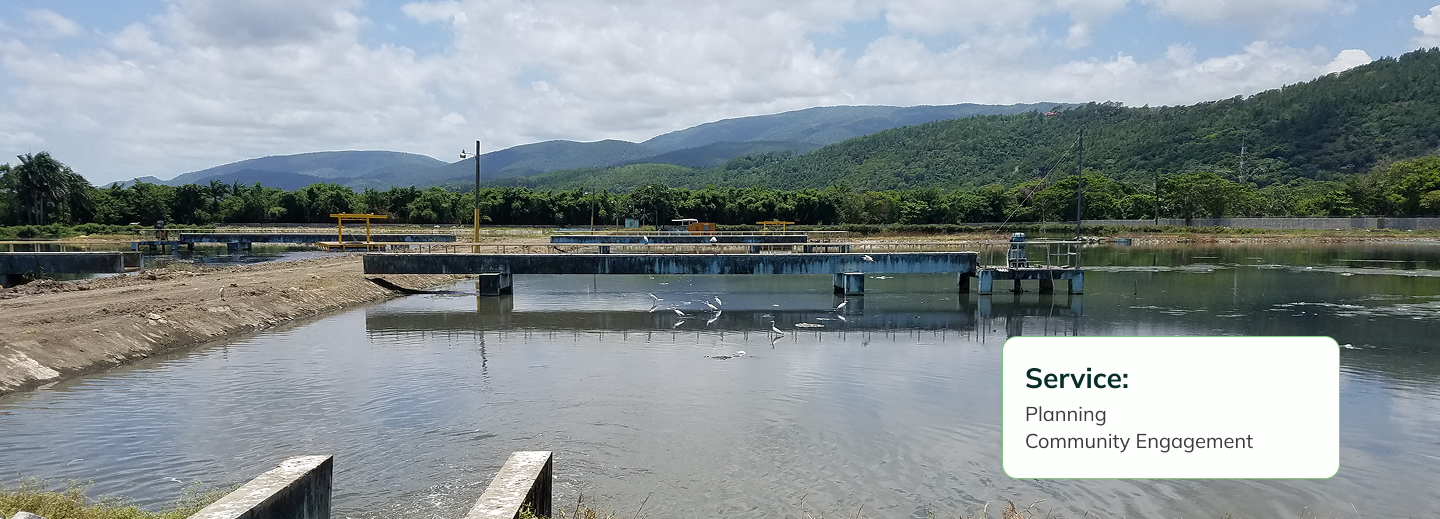Sustainable water and waste management solutions are essential for environmental protection and community well-being, particularly in resource-limited areas. This project in central Dominican Republic aimed to train community members, municipality stakeholders, and university professionals on decentralized wastewater treatment and waste-to-resource systems.
By integrating community engagement and education, the initiative sought to build local capacity for implementing and maintaining sustainable water management infrastructure.
Approach:
The project utilized multi-level training sessions to equip the community with practical skills and knowledge for sustainable environmental management. Key actions included:
- Pilot program implementation in five neighborhoods, where households learned to separate organic and inorganic waste for composting.
- Discussions on biochar and gasification, highlighting their potential for waste-to-energy conversion.
- Seminar for engineers and architects on decentralized wastewater treatment technologies, where constructed wetlands emerged as a favored solution due to their low-cost, low-maintenance benefits.
Result:
- Increased awareness and skill development in sustainable water management.
- Community participation in composting to enhance soil health and reduce waste.
- Adoption of decentralized wastewater treatment methods tailored to local needs.
- Strengthened municipal and university collaboration to support long-term sustainability.
The Role of Community Engagement in Environmental Protection
Education & Capacity Building:
Equipping local leaders with knowledge and skills to implement climate-smart infrastructure for long-term sustainability.
Environmental Stewardship:
Teaching waste separation, composting, and biochar production helps communities reduce landfill waste, improve soil health, and lower carbon emissions.
Social & Economic Benefits:
Training professionals in low-cost, decentralized wastewater solutions provides opportunities for income generation and better sanitation access.
Scalable Impact:
By combining education, training, and community engagement, we create replicable models that can be adapted to other low-resource and rural communities worldwide.
This project demonstrated that effective environmental solutions begin with empowered, knowledgeable communities. Through continued engagement and education, we can drive lasting social and environmental impact for a sustainable future.


